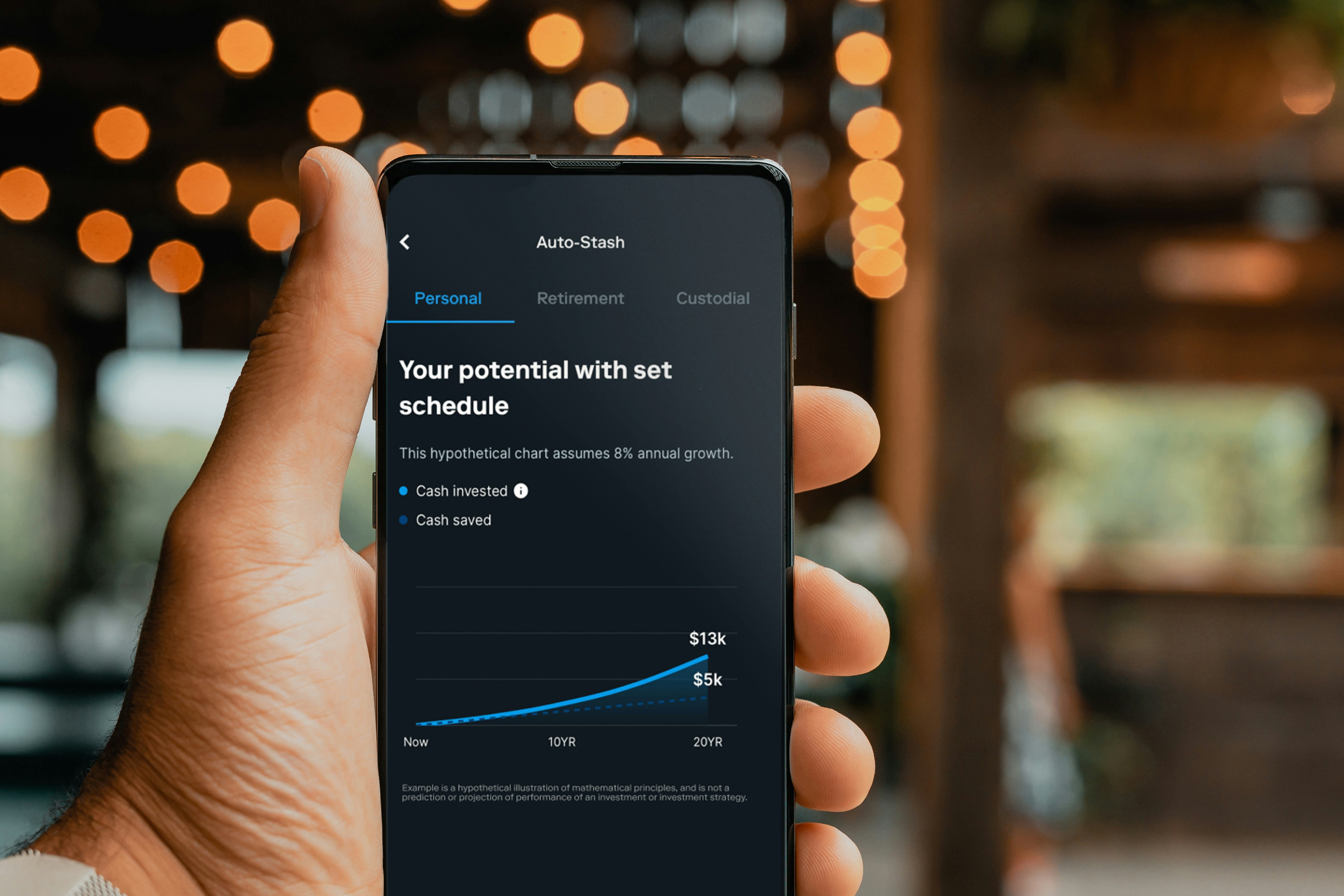Understanding Your Financial Landscape
For new immigrants, gaining a thorough understanding of the financial landscape in a new country is a crucial first step toward effective budgeting. The financial environment can significantly differ from what you may be accustomed to, involving various aspects such as the cost of living, average salaries, banking systems, and available resources. Understanding these elements lays a foundation for sound financial planning and decision-making.
One of the primary factors to consider is the cost of living, which encompasses essential expenses like housing, utilities, transportation, and food. Researching local rental prices can provide insight into the kind of accommodations that fit within your budget. It is advisable to explore different neighborhoods as housing costs may vary significantly throughout the area. Websites and local resources can help compare prices and identify affordable options.
Additionally, assessing average salaries in your field can offer a realistic perspective on potential earnings. Understanding what others in your profession earn can help you evaluate job offers more effectively. Likewise, familiarizing yourself with the local banking system is vital. Identifying banking institutions that cater to immigrants and understanding the various services they provide can facilitate smoother transactions and better financial management.
As you navigate your new environment, take note of the financial obligations that will require immediate attention. This includes recurring expenses such as utility bills and transportation costs, which, if overlooked, can strain your budget. Food costs can also vary widely based on dietary preferences and shopping habits; therefore, planning meals and creating shopping lists can lead to more economical choices.
In summary, understanding your financial landscape is essential for budgeting effectively as a new immigrant. By taking the time to assess these factors, you can better prepare for financial success in your new country.
Setting Realistic Financial Goals
As a new immigrant, establishing realistic financial goals is crucial for achieving financial stability in an unfamiliar environment. It is essential to differentiate between short-term and long-term objectives, ensuring that they align with your current circumstances. Short-term goals might include creating an emergency fund, paying off initial debts, or securing basic living necessities, while long-term goals could encompass saving for a home, retirement, or children’s education.
To define these goals effectively, start by assessing your existing financial situation. This involves understanding your income sources, calculating any outstanding debts, and determining necessary monthly expenses, such as housing and transportation. Making a comprehensive budget will help you identify areas where you may need to adjust your spending to meet these predetermined targets. This financial awareness is instrumental in fostering a sense of control over your money management.
Once you have a clear understanding of your financial landscape, it’s essential to prioritize your goals. Focus on what is most pressing. For instance, if you have significant debt, it may be wise to allocate resources towards paying that down before accumulating savings. Developing a timeline for your goals can also make them feel more attainable. Consider setting milestones that allow you to track your progress over time, providing motivation and accountability.
In addition, factors such as lifestyle changes are important considerations when setting financial goals. The cost of living may differ significantly from what you are accustomed to, requiring adjustments to your budget and expectations. Embracing flexibility will allow you to adapt your goals as your financial situation evolves. This ensures that they remain realistic and reflective of your new life as an immigrant.
Creating a Detailed Monthly Budget
Creating a comprehensive monthly budget is a crucial step for new immigrants aiming to manage their finances effectively. A detailed budget not only helps individuals set financial priorities but also allows them to visualize their income and expenditures. To begin, it is essential to identify all sources of income, which may include salary, freelance work, or government assistance. Once income sources are established, the next step is to calculate anticipated expenses, ranging from fixed costs like rent and utilities to variable costs such as groceries and transportation.
One popular budgeting method is the zero-based budgeting approach. This technique involves allocating every dollar earned to specific expenses, savings, or debt repayment, ensuring that the budget balances to zero by the end of the month. By adhering to this method, individuals can gain better control over their spending and eliminate unnecessary expenses. Another effective strategy is the 50/30/20 rule, which allocates 50% of income to needs, 30% to wants, and 20% to savings or debt payments. This guideline simplifies budgeting by providing a clear framework for how to distribute finances.
To streamline the budgeting process, various tools and templates are available. Budgeting apps, spreadsheets, and budgeting journals can help track income and expenses, making it easier to identify spending habits and areas for improvement. For instance, using an app that syncs with bank accounts can provide real-time insights into spending patterns, allowing for timely adjustments. Additionally, creating a monthly budget can empower immigrants to set financial goals, fund their future endeavors, and build a stable financial foundation in their new country.
Building an Emergency Fund
Establishing an emergency fund is a crucial step for new immigrants adapting to a different financial landscape. An emergency fund serves as a financial safety net, preparing individuals for unexpected expenses such as medical emergencies, car repairs, or sudden job loss. Financial experts often recommend establishing an emergency fund that can cover three to six months of living expenses. However, new immigrants should assess their personal circumstances, such as family size and income stability, to determine a suitable target for their fund.
To build an emergency fund gradually, one effective strategy is to set aside a small percentage of your income each month. This can start as a modest amount, ensuring it is manageable within your budget. Automating savings can simplify the process; for instance, setting up a direct deposit into a separate savings account dedicated solely to emergencies could foster discipline in saving. Many financial institutions offer high-yield savings accounts, which can help your emergency fund grow more efficiently due to compound interest.
Moreover, it’s important to recognize that expectations surrounding emergency funds may differ significantly between one’s home country and the new country. Factors such as cost of living, social safety nets, and cultural attitudes toward savings can influence how much is considered necessary. Researching local standards and consulting with financial advisors can provide clarity on establishing realistic goals for your emergency fund. By prioritizing savings and building this essential financial cushion, new immigrants can enhance their financial resilience and navigate the uncertainties of their new environment with greater confidence.
Utilizing Community Resources and Support
For new immigrants navigating the complexities of their new environment, understanding and utilizing community resources can be indispensable. Numerous non-profit organizations and community centers offer essential services, including financial guidance and budgeting workshops tailored specifically for newcomers. These resources provide invaluable support in enhancing financial literacy and promoting sound budgeting practices, which are crucial for effective financial management.
To begin accessing these resources, it is advisable for new immigrants to research local non-profit organizations that focus on immigrant support. These organizations frequently provide workshops that address budgeting fundamentals, financial planning, and proper management of household expenses. Many of these workshops are free or available at a minimal cost, making them accessible for individuals adjusting to a new financial landscape. Additionally, community centers often serve as hubs for fostering connections, providing access to information about available financial resources and other services that can aid new residents.
Moreover, local immigrant support groups can be instrumental in connecting newcomers with valuable resources. These organizations often collaborate with financial experts and counselors who can offer personalized guidance regarding budgeting strategies tailored to meet the diverse needs of immigrants. Networking within these groups not only helps in finding financial resources but also builds a sense of community and support among peers facing similar challenges.
Social media platforms and community bulletin boards can also serve as effective channels for discovering events and workshops focused on budgeting. By actively engaging with these platforms, new immigrants can find announcements about local informational seminars, financial literacy courses, and other community events aimed at promoting economic stability. Over time, making use of these resources can empower newcomers to achieve a stronger grasp on their financial health, paving the way for a more successful transition into their new life.
Understanding Credit and Loans
Establishing credit is a critical step for new immigrants seeking to navigate their financial landscape in a new country. Unlike some home countries where credit maybe less emphasized, in many Western nations, a good credit score is essential for securing loans, renting properties, and sometimes even obtaining employment. It is vital for immigrants to grasp how credit operates in this new environment, as the systems and metrics used might differ greatly from what they are accustomed to.
Building credit from scratch requires a proactive approach. New immigrants often start with no credit history, which can hinder access to financial products. It is advisable to open a basic bank account and apply for a secured credit card, which can be a practical first step. A secured card requires a cash deposit that serves as collateral, enabling individuals to make purchases while building a credit history. Additionally, paying utility bills and rent on time can contribute positively to credit scores, as many utilities report this information to credit bureaus.
Understanding the various types of loans available is crucial. There are secured loans, which require collateral, and unsecured loans that do not. Furthermore, some financial institutions offer personal loans that can help cover immediate expenses but may come with higher interest rates. This is where caution is essential; newcomers should be wary of predatory lending practices that target immigrants unfamiliar with local lending norms. These may include exorbitant interest rates and hidden fees that can lead to insurmountable debt.
In conclusion, comprehending credit and loans is paramount for new immigrants, allowing them to thrive financially in their new environment. Building a solid credit foundation and making informed borrowing decisions can pave the way for future financial security. By being aware of potential pitfalls, immigrants can navigate the complexities of the credit system with greater confidence.
Cutting Unnecessary Expenses
For new immigrants, navigating financial responsibilities in an unfamiliar environment can be challenging. One of the most effective strategies to achieve financial stability involves cutting unnecessary expenses from your monthly budget. The first step is to meticulously track all spending to identify areas where reductions can be made. By maintaining an organized record, individuals can quickly ascertain patterns and spotlight expenditures that do not contribute to their essential needs or wellbeing.
Daily expenses often go unnoticed, yet they can accumulate significantly over time. For instance, evaluating lunch spending reveals that frequent dining out can drain financial resources. Instead, consider bringing meals from home or seeking budget-friendly meal prep options. This not only saves money but can also lead to healthier eating habits, as well as an opportunity to explore local grocery markets for fresh, cost-effective ingredients.
Entertainment also presents an opportunity for cost savings. Instead of opting for paid options, seeking free community events, local parks, or affordable recreational activities can be beneficial. Many cities offer cultural festivals, outdoor concerts, and other community-driven activities that can be enjoyed without incurring costs. This allows new immigrants to engage with their community while adhering to their budget.
Additionally, reviewing subscription services like streaming platforms or gym memberships is vital. Evaluate the necessity of each service and consider canceling those that are rarely used. In favor of subscriptions that provide more value, one might also look into community classes or online resources that offer exercise options at no cost. Developing prudent spending habits is essential for long-term financial success. By remaining vigilant against unnecessary expenses, new immigrants can create a sustainable budget that allows for savings and financial growth as they adapt to their new surroundings.
Leveraging Discounts and Promotions
As a new immigrant settling into an unfamiliar city, managing finances becomes a crucial aspect of adapting to your new environment. One effective way to ensure your budgeting remains intact is by leveraging discounts and promotions available in local stores and online. Many retailers offer special deals, which can significantly reduce your overall expenses. Familiarizing yourself with these offers can help you stretch your budget further and achieve better financial control.
One of the most efficient ways to access discounts is by joining store loyalty programs. These programs often provide exclusive discounts, early access to sales, and rewards that can accumulate over time. Many businesses incentivize customer loyalty, thus, being part of these programs not only allows you to save money but can also offer valuable insights into upcoming promotions. When shopping, always inquire whether the store has a loyalty program and evaluate if joining could benefit your financial planning.
In addition to loyalty programs, utilizing budgeting apps can enhance your financial management. These applications can keep you informed about ongoing discounts, track your spending habits, and notify you of sales that match your interests. Some budgeting tools feature alerts for discounts from multiple stores, ensuring that you never miss a great deal. Staying organized with these resources will help you seamlessly integrate discounts into your shopping routine while adhering to your budget.
Moreover, subscribe to newsletters from local retailers, as this can be a great way to stay updated on exclusive promotions. Online communities and social media platforms often share information regarding flash sales or clearance events, which can provide additional opportunities for savings. By being proactive and informed, you can make the most of your new budget, ensuring a smoother transition into your new life.
Reviewing and Adjusting Your Budget Regularly
Maintaining a robust financial plan is essential, especially for new immigrants who may face unique economic challenges. One of the most fundamental aspects of effective budgeting is the regular review and adjustment of one’s financial allocations. Tracking your progress relative to predefined financial goals ensures that you remain on the right path and helps you make informed decisions as circumstances change.
It is crucial to set a schedule for reviewing your budget. This could be monthly, quarterly, or biannually, depending on your financial situation and personal preferences. During these reviews, identify whether your expenses align with your income. Monitor trends in spending habits, as they may signal the need for adjustments. For example, if you find yourself consistently overspending in certain categories, such as groceries or entertainment, it may be wise to rethink those budgetary allocations. Conversely, if you have been underspending in some categories, consider leveraging those funds to enhance savings, pay off debt, or increase investments.
There are several indicators that suggest it is time to make adjustments to your budget. Changes in your income, whether an increase or decrease, will necessitate modifications to your financial plan. Additionally, changes in your living circumstances, such as moving to a different area or altering your employment status, can significantly impact your budget. Use these moments as opportunities to re-evaluate your financial goals.
Techniques for effectively reviewing your expenses against your income include tracking software or budgeting apps that provide visual representations of your financial health. It may also be helpful to categorize your expenses to understand where your money goes and identify areas for potential savings. Regular budget reviews foster mindfulness and adaptability in financial planning, which are indispensable for new immigrants striving to secure their financial future.


